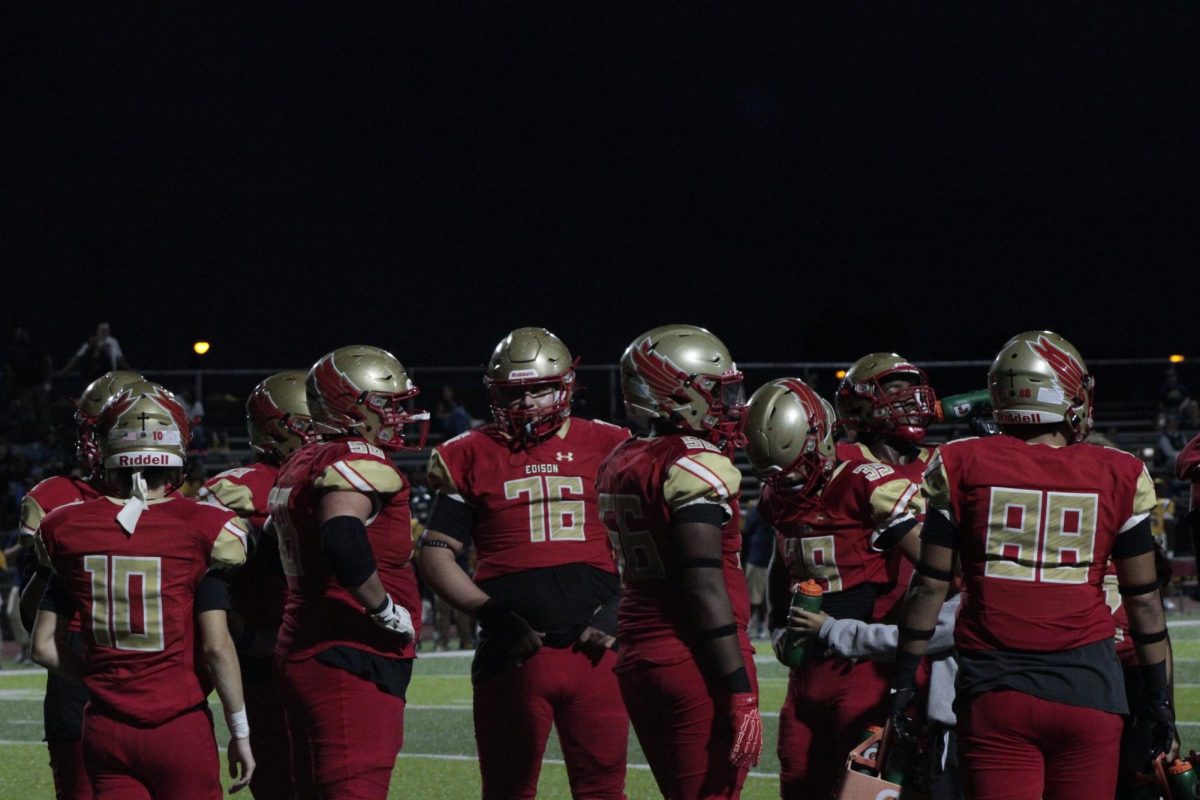Are Advanced Placement (AP) Programs Right For You?
November 19, 2021
The Advanced Placement (AP) courses and their respective exams administered during May and June are taken by many students across the world each year. As students enroll for these college-level courses, many have unanswered questions about their apparent nature despite high enrollment.
The Advanced Placement program started in the 1950s, inspired due to the ongoing Cold War conflict between the U.S and Soviet Union. Many American lawmakers argued that U.S high school students were falling behind in education compared to the rest of the world. By offering students an opportunity to try out college-level courses, the lost ground could be recovered. Initially created by the Ford Foundation in 1951 and later adopted by the College Board, a nonprofit, in 1955, AP courses have evolved and become a crucial part of the standardized testing process. As the popularity of AP courses has increased, colleges and universities have increasingly adopted them in college admissions to help students graduate quicker.
College Board offers 38 AP courses in disciplines such as the arts, English, history and social science, math and computer science, the sciences, and world languages and culture. AP courses in school often require prerequisites, but you can self-study these courses as well. Each course usually requires students to read difficult textbooks, grasp complex topics, and spend an adequate amount of time each night completing homework. At the end of the year, you take the AP exams that determine whether you will receive college credit. The exam is scored on a scale of 1-5. If a student scores a 1 or 2 they do not receive credit, but if a student scores above a 3, considered “passing,” they are eligible to receive credit, depending on the university or program.
If students perform well on these exams they can save tuition money. However, not all colleges and universities have the same AP credit policy and this can make it difficult for students to decide whether signing up for the exam is worthwhile. Most Ivy League colleges like Harvard, Columbia, Princeton, and the University of Pennsylvania only accept AP credit if students score a 5 or at the very least a 4 on the exam. Brown and Dartmouth universities do not accept AP credit at all. Even colleges like Rutgers, only accept AP credit for scores of 4 and 5, but colleges like Middlesex Community College, Caldwell College, etc. offer credit for scores 3 and above. This variation in AP credit policy makes the decision on whether or not to take the AP exam extremely difficult for students each year. It is usually easier for Seniors because they are in the process of their college applications, but juniors, sophomores, and some freshmen also sign up for AP exams. Applying to rigorous colleges like the Ivy Leagues and not getting rewarded for all the hard effort put in for AP courses in high school is certainly disappointing for many AP students.
The discrepancy between AP credit policies in various colleges is certainly an issue, but it’s a complicated one. Ivy leagues are required to have a higher standard, and thus it makes sense for them to accept higher scores; and, community colleges are meant for the community at large, so thus it makes sense why they are more lenient with their scores. However, from the perspective of the student, it can be frustrating. Students already have to focus on extracurricular activities and SATs. The fact that colleges have different policies doesn’t make the choice any easier for students.
So should students take AP Exams?
Even though you most likely will not get all the college credits you want, advanced placement courses are beyond just that. These courses are something much bigger than the ability to save tuition money: They are eye-openers into introductory college classes, and they force your mind to think in a way that is different from traditional honors and accelerated classes. AP exams especially differ in the type and format of the questions they ask compared to regular exams.
“For the exam, those questions are different from how Honors physics asks questions, but it is the same concept. The key difference is that AP Physics 1 and 2 are more application-based. So, you have to show how you know and explain how you know as opposed to just getting a final answer,” said EHS AP Physics teacher, Ms. Kruti Singh. The aspect that students particularly dislike about AP courses is the exam, primarily because of the stress it causes.
“The stress levels were pretty high before the exam but after that, I calmed down and everything went well, ” said Arjun Popat ’23. However, the exam is also a motivational factor, something that keeps the student going. Without the exam, most students that aren’t passionate about the subject find the class to be more difficult because they don’t have any other incentives besides their GPA to keep them from experiencing the fun that comes with a rigorous course.
“For a student that takes an AP Physics course, I would recommend them to take the exam, only because it becomes a very stressful class if they are not working towards something in the end,” said Singh. She also recommends seniors that already applied to college to take the exam because it represents how much the student has learned throughout the course. Ivy league colleges might not accept AP Credit, however, they do notice that you took difficult classes in high school. You can rise to the top of your class by strengthening your transcript through these rigorous courses and you can develop college-level skills that will help you succeed later in life.
So how should students approach the class and the exam? The biggest mistake that students make when studying for AP courses is that they focus on trying to “memorize” or study for countless hours instead of trying to grasp the concepts.
“The best thing that a student has said to me in the past two years–It was a student I had two years in a row–, but he found that once he understood the concept, he studied less in terms of time because every single question was an application of a concept,” said Singh. She mentions how when students practice, “they should gear towards the mindset of what is everything that I can determine from this problem and once you put everything together it becomes easier. Then, when you are reading a question you clearly understand the objective they are trying to get at.”
Each AP course is different, but they all involve using skills and concepts rather than ONLY memorization. For example, AP U.S History and AP World require students to use historical thinking skills like causation, continuity & chance, and compare and contrast when looking at history essay prompts and the stimulus-based multiple-choice questions. While memorizing facts is certainly important in history, the AP course has been modified over the years to include more application-based questions rather than a test of facts. Similarly, AP course Computer Science A tests-core programming concepts like iteration, writing classes, inheritance, arrays, etc. in Java rather than just memorization of particular method names or syntax. All of these courses have a similar pattern: They want your mind to think beyond the traditional way. It focuses less on “the answer” but rather on the root of the answer. That’s the key to success on the AP exam and the class.
Although your preferred university might not grant you all the AP credits you desire, you shouldn’t shy away from AP courses. They are a good challenge and colleges do notice them, but they can also get overwhelming very quickly. High school students also have to worry about building their extracurricular profile and SATs so a student shouldn’t take AP classes if they cannot manage their time well. Overloading yourself with APs is certainly not a good idea. It’s better to take 2 AP courses and score well on them rather than take 6 AP courses and struggle considerably.
Doing what’s right for you is more important than what your friend is doing.

























































































